The eighth generation Astra has been ushered in, and it looks utterly superb.
The car is built on the same platform as other Stellantis produced vehicles (the parent company owns a host of different car brands). In fact, the Astra is almost identical to the new Peugeot 308 in many ways. But Vauxhall (and Opel – the European counterpart to Vauxhall) says it’s tweaked the Astra to give it a distinct non-Peugeot personality.
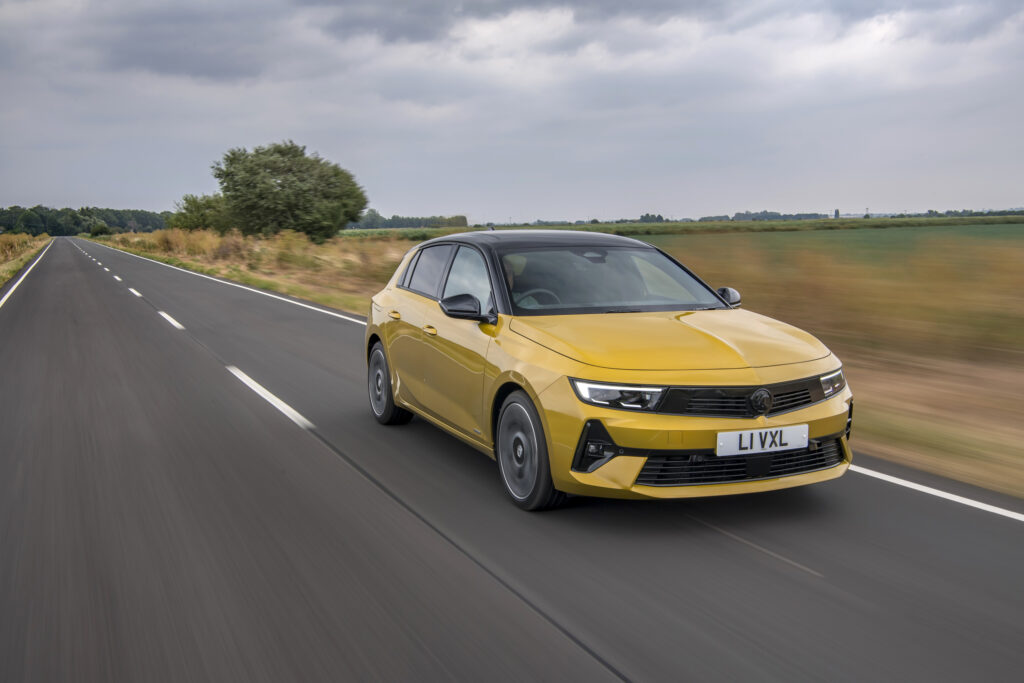
The new Astra not only looks sharp, but it drives incredibly well, too. England’s roads are never the most forgiving, but the Vauxhall makes light work of them. The car soaks up imperfections in the tarmac as though it were blotting paper, and the potholes were ink. It also handled corners confidently with barely any lean.
Sure, the hatchback is no hot-hatch, but it will more than please families who want a no-nonsense, tried, and tested mode of transport. I say ‘tried and tested’ because, well, Vauxhall wouldn’t bang out another Astra just for the sake of it without being confident of its abilities. Plus, Peugeot isn’t going to want to ruin its ever-improving image with the very similar 308.
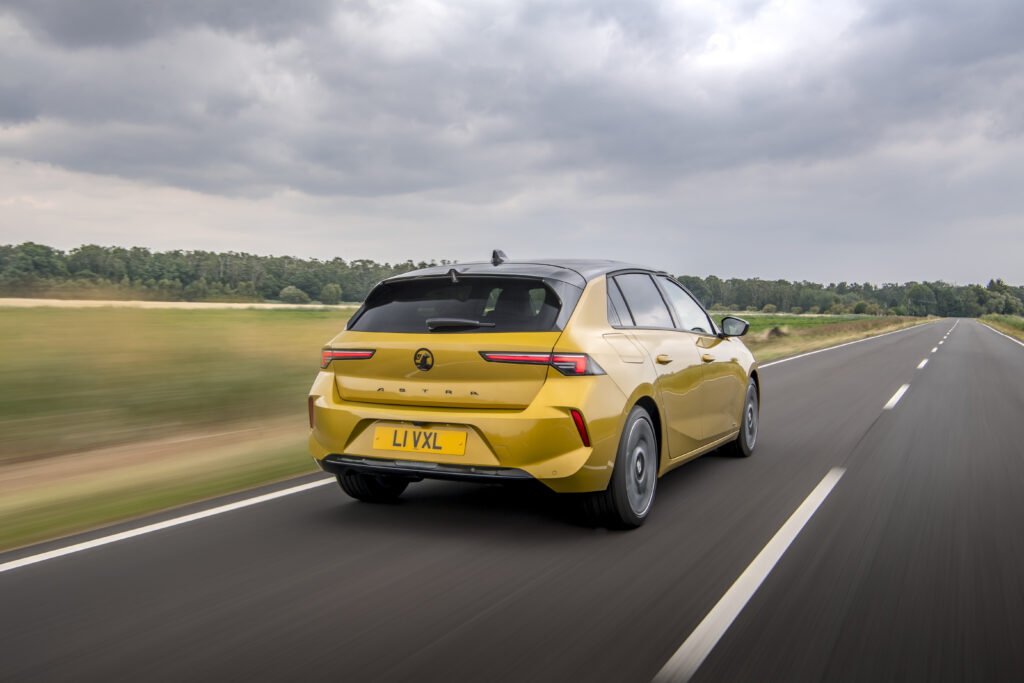
So, what do you get for your hard-earned cash if you go for the all-new Astra, then? Well, you’ll see that Vauxhall has dumbed the trims right down. You only have a choice of three, making life easy. Then, all you have to do is decide if you want petrol, a diesel, a PHEV (Plug-in Hybrid Electric Vehicle) – or an all-electric version (coming soon).
The simplified grade levels go like this: Design, GS Line and Ultimate. My car was in Ultimate petrol guise and came with a nicely athletic (for a family car that isn’t a hot-hatch) edge. The ride was on the firm side without being uncomfortable, the stopping power was admirable, and the seats were all comfy – and very supportive. Indeed, Vauxhall has gone to town by making the chairs ultra-ergonomic and claim they’re certified by the German Campaign for Healthier Backs. But what’s Germany got to do with it? Well, the Astra is made there, you see.
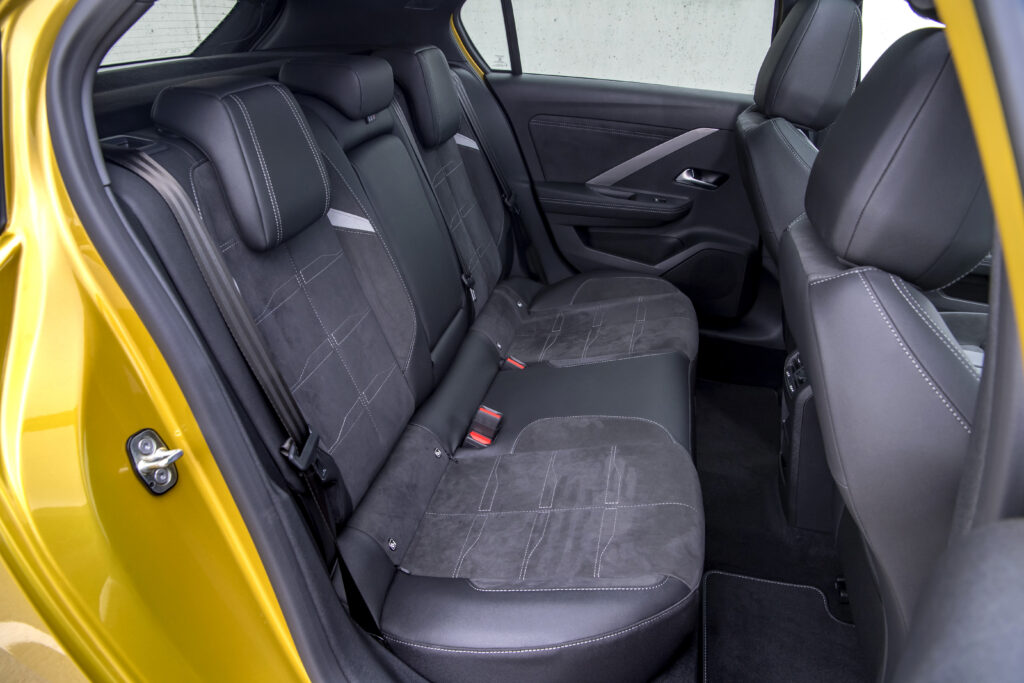
The Astra’s automatic transmission is slick, helping the car get to 0-60mph in 9.7 seconds. Okay, the zero to 60mph figure doesn’t look that fast, but it feels surprisingly nippy in the real world.
Room is good in the front of the new hatchback, but its rear leg space is restricted. This is because the Astra’s boot is bigger – and it has eaten into the rear-seat area. No matter, though, as two or three adults will still fit in the back, as headroom is fine. It is just the lack of leg and knee room that might rain on the parade on a long journey.
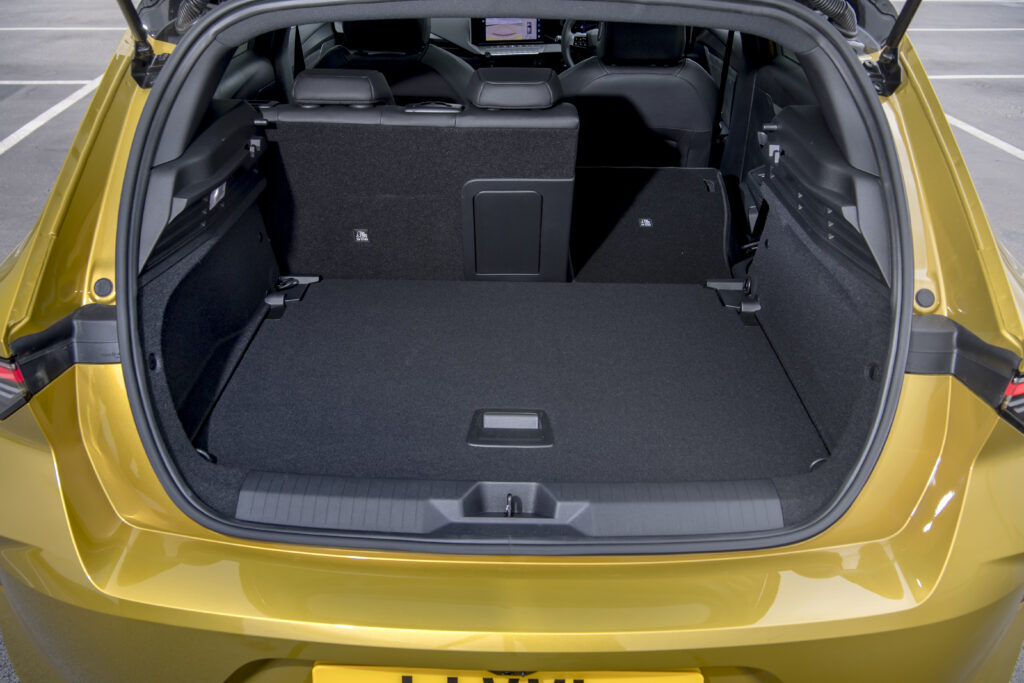
Anyway, back to the boot; the capacity here is very good at 422 litres or 1,339 litres if you kick the passengers out and fold the rear seats.
As for the tech, the cabin houses a space-age Pure Panel Pro cockpit. What’s that, then? Well, you get two screens – a digital infotainment and an instrument system in one combined unit. The displays are crisp, and the navigation is better than anything seen in an Astra before.
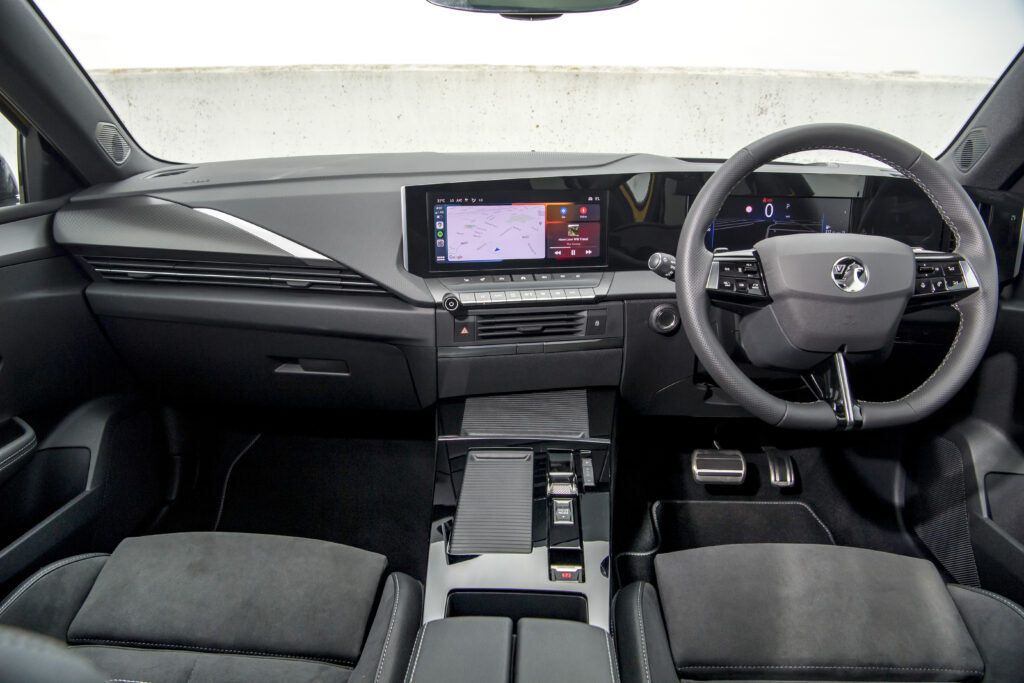
Wireless connectivity in the shape of Android Auto and Apple CarPlay is incorporated as standard, as is voice control software. So, all you need to do is say “Hey Vauxhall”, and the car will respond to a simple given command. For instance, you could ask it to turn the temperature down.
Overall, then, it’s brilliant news: the Astra has persistently played catch up with the benchmark rival hatchback, the VW Golf, and we can’t forget the Ford Focus, either. Now, the gulf (excuse the pun) between these cars has become a gap – and it’s so narrow you’d be lucky to slide a credit card through it.
Fast Facts: Vauxhall Astra Ultimate 1.2 Turbo – as tested:
- Max speed: 130 mph
- 0-60 mph: 9.7 secs
- Combined mpg: 50.4 mpg (WLTP)
- Engine layout: 1,199cc three-cylinder turbo petrol
- Max. power (PS): 130
- CO2: 131 g/km
- Price: £31,865


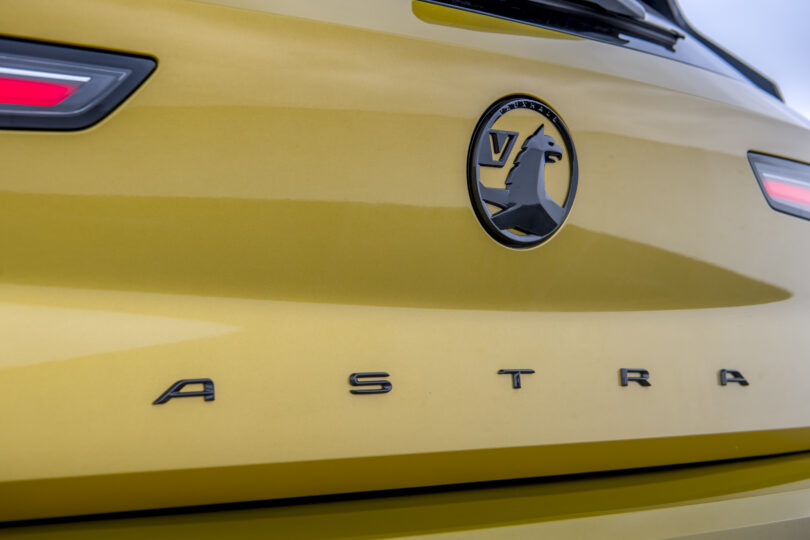


























Leave a Comment
You must be logged in to post a comment.